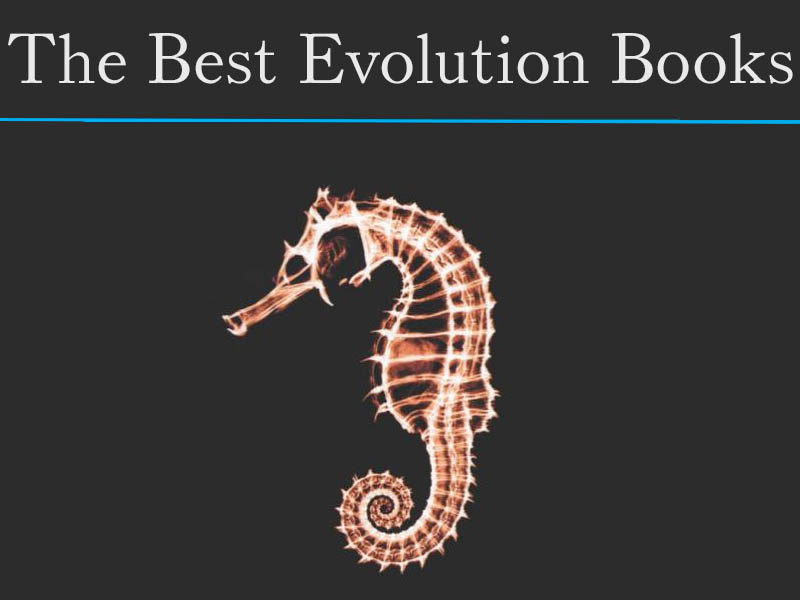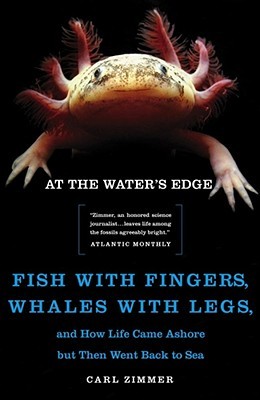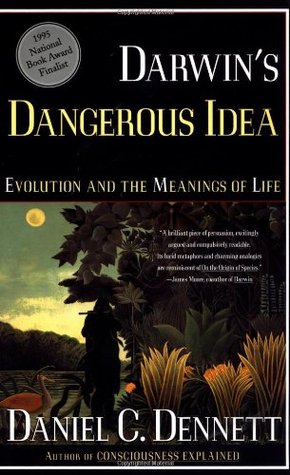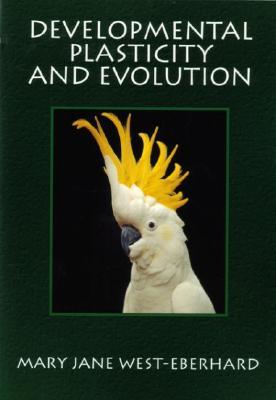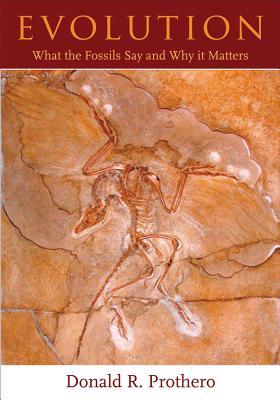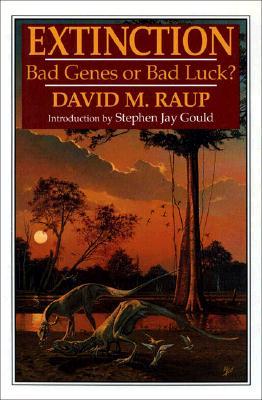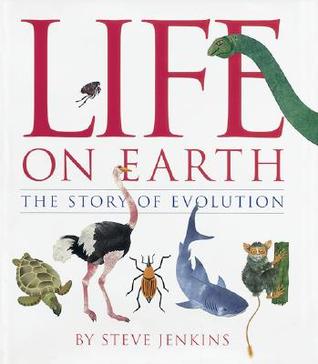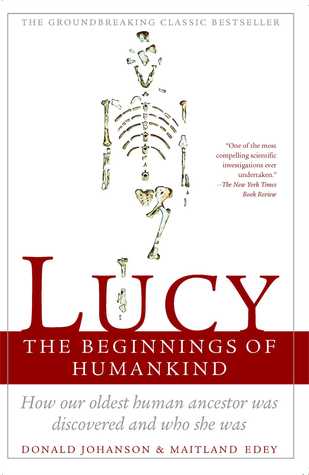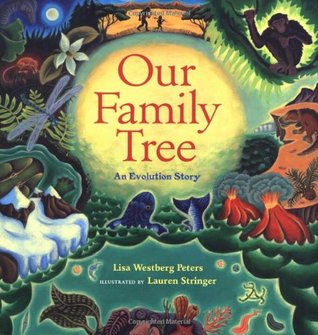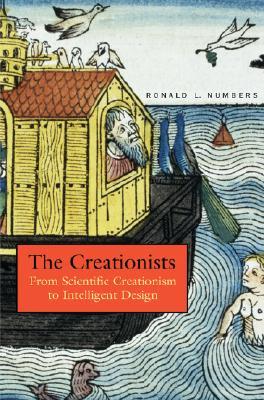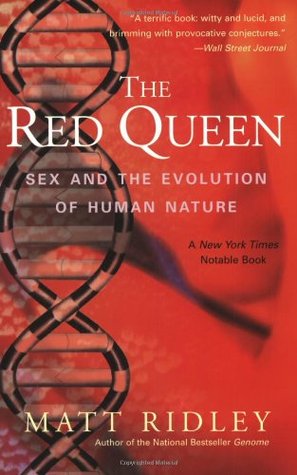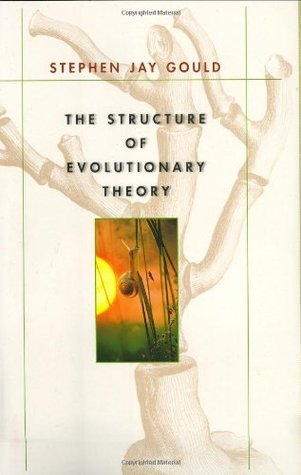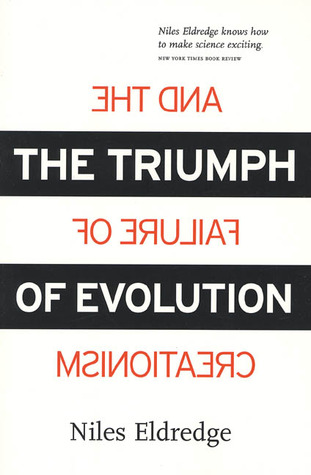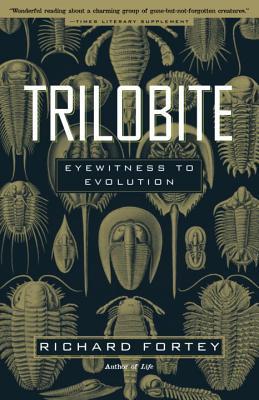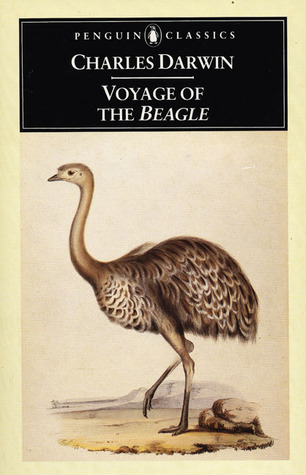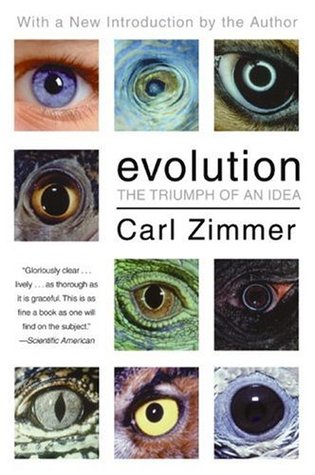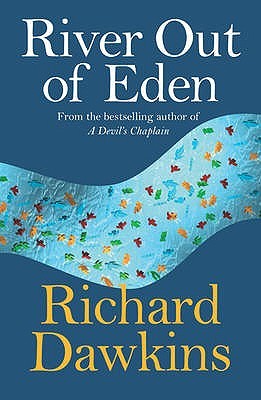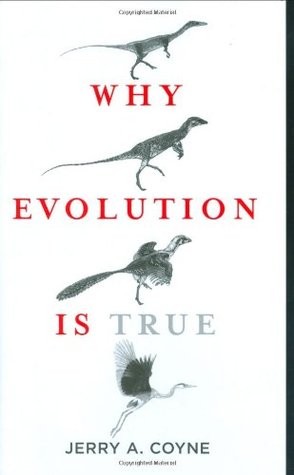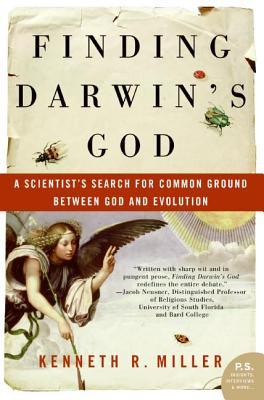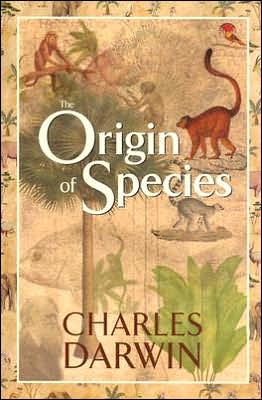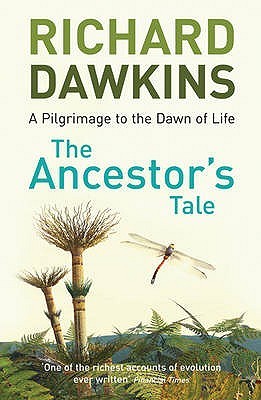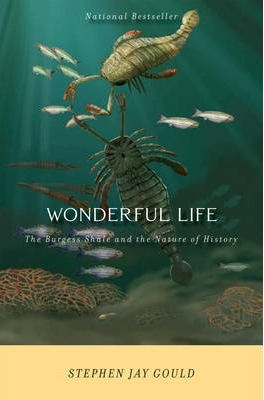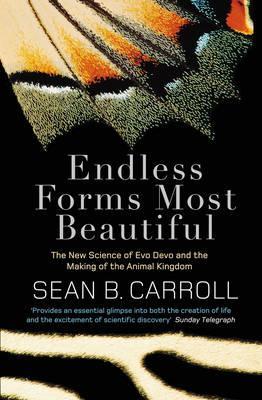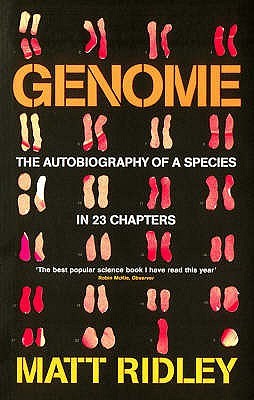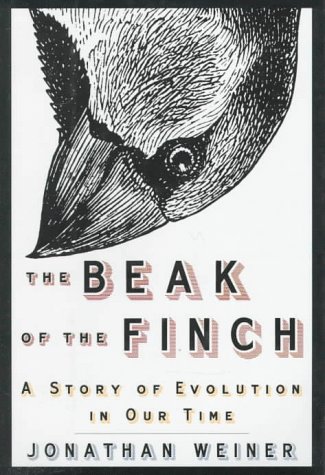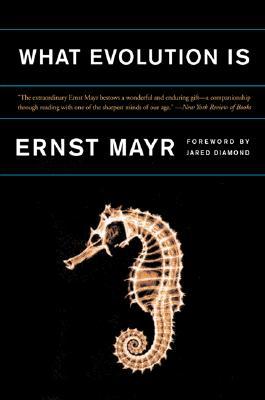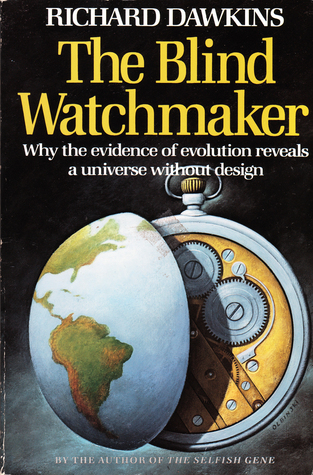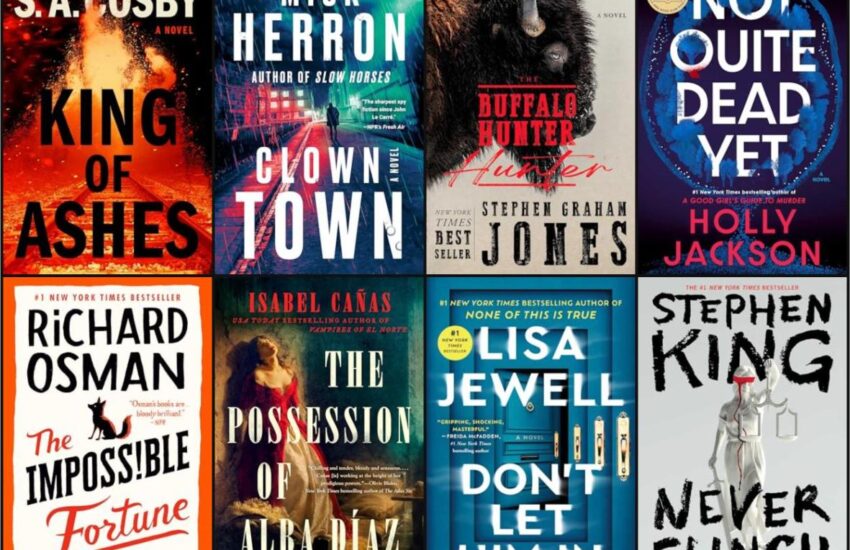The Best Books About Evolution
“What are the Best Books About Evolution?” We looked at 334 different titles, aggregating and ranking them so we could answer that question!
When we start these lists, we have no idea what the top book is going to be. Sometimes when we finish the top book is what we thought it might be, but other times it is something completely different. For this Evolution list, we assumed that the top spot was surely going to be Darwin, but he surprisingly didn’t even make the top 5. Still, Darwin probably shows up (from tiny mentions to biographies) in most of these books, so it’s not like he was completely forgotten about.
The top 28 books, all appearing on 3 or more lists are below with images, descriptions, and links. The remaining titles, as well as the sources we used, can be found at the bottom of the page.
Happy Scrolling!
The Top Evolution Books Of All-Time
28 .) At the Water’s Edge: Fish With Fingers, Whales With Legs, and How Life Came Ashore but Then Went Back to Sea by Carl Zimmer
Lists It Appears On:
- lclane2
- Goodreads
- Science Blogs
“At the Water’s Edge will change the way you think about your place in the world. The awesome journey of life’s transformation from the first microbes 4 billion years ago to Homo sapiens today is an epic that we are only now beginning to grasp. Magnificent and bizarre, it is the story of how we got here, what we left behind, and what we brought with us.
We all know about evolution, but it still seems absurd that our ancestors were fish. Darwin’s idea of natural selection was the key to solving generation-to-generation evolution — microevolution — but it could only point us toward a complete explanation, still to come, of the engines of macroevolution, the transformation of body shapes across millions of years. Now, drawing on the latest fossil discoveries and breakthrough scientific analysis, Carl Zimmer reveals how macroevolution works. Escorting us along the trail of discovery up to the current dramatic research in paleontology, ecology, genetics, and embryology, Zimmer shows how scientists today are unveiling the secrets of life that biologists struggled with two centuries ago. “
27 .) Darwin’s Dangerous Idea: Evolution and the Meanings of Life by Daniel Dennett
Lists It Appears On:
- Wikipedia
- The Telegraph
- Goodreads
In a book that is both groundbreaking and accessible, Daniel C. Dennett, whom Chet Raymo of The Boston Globe calls “one of the most provocative thinkers on the planet,” focuses his unerringly logical mind on the theory of natural selection, showing how Darwin’s great idea transforms and illuminates our traditional view of humanity’s place in the universe. Dennett vividly describes the theory itself and then extends Darwin’s vision with impeccable arguments to their often surprising conclusions, challenging the views of some of the most famous scientists of our day.
26 .) Developmental Plasticity and Evolution by Mary Jane West-Eberhard
Lists It Appears On:
- lclane2
- The Third Way
- Science Blogs
The first comprehensive synthesis on development and evolution: it applies to all aspects of development, at all levels of organization and in all organisms, taking advantage of modern findings on behavior, genetics, endocrinology, molecular biology, evolutionary theory and phylogenetics to show the connections between developmental mechanisms and evolutionary change. This book solves key problems that have impeded a definitive synthesis in the past. It uses new concepts and specific examples to show how to relate environmentally sensitive development to the genetic theory of adaptive evolution and to explain major patterns of change. In this book development includes not only embryology and the ontogeny of morphology, sometimes portrayed inadequately as governed by “regulatory genes,” but also behavioral development and physiological adaptation, where plasticity is mediated by genetically complex mechanisms like hormones and learning. The book shows how the universal qualities of phenotypes–modular organization and plasticity–facilitate both integration and change. Here you will learn why it is wrong to describe organisms as genetically programmed; why environmental induction is likely to be more important in evolution than random mutation; and why it is crucial to consider both selection and developmental mechanism in explanations of adaptive evolution. This book satisfies the need for a truly general book on development, plasticity and evolution that applies to living organisms in all of their life stages and environments. Using an immense compendium of examples on many kinds of organisms, from viruses and bacteria to higher plants and animals, it shows how the phenotype is reorganized during evolution to produce novelties, and how alternative phenotypes occupy a pivotal role as a phase of evolution that fosters diversification and speeds change. The arguments of this book call for a new view of the major themes of evolutionary biology, as shown in chapters on gradualism, homology, environmental induction, speciation, radiation, macroevolution, punctuation, and the maintenance of sex. No other treatment of development and evolution since Darwin’s offers such a comprehensive and critical discussion of the relevant issues. Developmental Plasticity and Evolution is designed for biologists interested in the development and evolution of behavior, life-history patterns, ecology, physiology, morphology and speciation. It will also appeal to evolutionary paleontologists, anthropologists, psychologists, and teachers of general biology.
25 .) Evolution: What the Fossils Say and Why It Matters by Donald Prothero
Lists It Appears On:
- Five Books
- Wikipedia
- Goodreads
“Over the past twenty years, paleontologists have made tremendous fossil discoveries, including fossils that mark the growth of whales, manatees, and seals from land mammals and the origins of elephants, horses, and rhinos. Today there exists an amazing diversity of fossil humans, suggesting we walked upright long before we acquired large brains, and new evidence from molecules that enable scientists to decipher the tree of life as never before.
The fossil record is now one of the strongest lines of evidence for evolution. In this engaging and richly illustrated book, Donald R. Prothero weaves an entertaining though intellectually rigorous history out of the transitional forms and series that dot the fossil record. Beginning with a brief discussion of the nature of science and the “”monkey business of creationism,”” Prothero tackles subjects ranging from flood geology and rock dating to neo-Darwinism and macroevolution. He covers the ingredients of the primordial soup, the effects of communal living, invertebrate transitions, the development of the backbone, the reign of the dinosaurs, the mammalian explosion, and the leap from chimpanzee to human. Prothero pays particular attention to the recent discovery of “”missing links”” that complete the fossil timeline and details the debate between biologists over the mechanisms driving the evolutionary process.”
24 .) Extinction: Bad Genes or Bad Luck? by David M. Raup
Lists It Appears On:
- lclane2
- Sandwalk
- Science Blogs
In the geological record, there are five major mass extinctions―the “Big Five.” The most famous happened at the end of the Cretaceous Period, when the dinosaurs and two-thirds of all marine animal species were wiped out, opening the door for the age of mammals and the rise of Homo Sapiens. Using this example as a springboard, David M. Raup leaps into an egaging discussion of the theories, assumptions, and difficulties associated with the science of species extinction. Woven is along the way are stories of the trilobite eye, tropical reefs, flying reptiles, and the fate of the heath hen on Martha’s Vineyard, a very modern extinction.
23 .) Life on Earth: The Story of Evolution by Steve Jenkins
Lists It Appears On:
- The Best Children’s Books
- lclane2
- Science Blogs
“There are millions of different kinds of plants and animals living on the earth. Many millions more lived here in the past. Where did they all come from? Why have some become extinct and others lived on?
In this remarkable book for children, Steve Jenkins explores the fascinating history of life on earth and the awe-inspiring story of evolution, Charles Darwin’s great contribution to modern science.”
22 .) Lucy: The Beginnings of Humankind by Donald C. Johanson
Lists It Appears On:
- Darwiniana
- Smithsonian
- Goodreads
When Donald Johanson found a partical skeleton, approximately 3.5 million years old, in a remote region of Ethiopia in 1974, a headline-making controversy was launched that continues on today. Bursting with all the suspense and intrigue of a fast paced adventure novel, here is Johanson’s lively account of the extraordinary discovery of “Lucy.” By expounding the controversial change Lucy makes in our view of human origins, Johanson provides a vivid, behind-the-scenes account of the history of pealeoanthropology and the colorful, eccentric characters who were and are a part of it. Never before have the mystery and intricacy of our origins been so clearly and compellingly explained as in this astonighing and dramatic book.
21 .) Our Family Tree: An Evolution Story by Lisa Westburg Peters
Lists It Appears On:
- The Best Children’s Books
- lclane2
- Science Blogs
All of us are part of an old, old family. The roots of our family tree reach back millions of years to the beginning of life on earth. Open this family album and embark on an amazing journey. You’ll meet some of our oldest relatives–from both the land and the sea–and discover what we inherited from each of them along the many steps of our wondrous past.
20 .) The Creationists by Ronald Numbers
Lists It Appears On:
- lclane2
- Science20
- Science Blogs
In light of the embattled status of evolutionary theory, particularly as “intelligent design” makes headway against Darwinism in the schools and in the courts, this now classic account of the roots of creationism assumes new relevance. Expanded and updated to account for the appeal of intelligent design and the global spread of creationism, The Creationists offers a thorough, clear, and balanced overview of the arguments and figures at the heart of the debate.
19 .) The Red Queen: Sex and the Evolution of Human Nature by Matt Ridley
Lists It Appears On:
- Wikipedia
- Evolving Economics
- Goodreads
Referring to Lewis Carroll’s Red Queen from Through the Looking-Glass, a character who has to keep running to stay in the same place, Matt Ridley demonstrates why sex is humanity’s best strategy for outwitting its constantly mutating internal predators. The Red Queen answers dozens of other riddles of human nature and culture — including why men propose marriage, the method behind our maddening notions of beauty, and the disquieting fact that a woman is more likely to conceive a child by an adulterous lover than by her husband. Brilliantly written, The Red Queen offers an extraordinary new way of interpreting the human condition and how it has evolved.
18 .) The Structure of Evolutionary Theory by Stephen J. Gould
Lists It Appears On:
- lclane2
- Goodreads
- Science Blogs
“The world’s most revered and eloquent interpreter of evolutionary ideas offers here a work of explanatory force unprecedented in our time–a landmark publication, both for its historical sweep and for its scientific vision.
With characteristic attention to detail, Stephen Jay Gould first describes the content and discusses the history and origins of the three core commitments of classical Darwinism: that natural selection works on organisms, not genes or species; that it is almost exclusively the mechanism of adaptive evolutionary change; and that these changes are incremental, not drastic. Next, he examines the three critiques that currently challenge this classic Darwinian edifice: that selection operates on multiple levels, from the gene to the group; that evolution proceeds by a variety of mechanisms, not just natural selection; and that causes operating at broader scales, including catastrophes, have figured prominently in the course of evolution.
Then, in a stunning tour de force that will likely stimulate discussion and debate for decades, Gould proposes his own system for integrating these classical commitments and contemporary critiques into a new structure of evolutionary thought.”
17 .) The Tree of Life: Charles Darwin by Peter Sis
Lists It Appears On:
- The Best Children’s Books
- Science Blogs
- lclane2
Charles Darwin was, above all else, an independent thinker who continues even now to influence the way we look at the natural world. His endless curiosity and passion for detail resulted in a wealth of notebooks, diaries, correspondence, and published writings that Peter Sís transforms into a visual treasure trove. A multilayered journey through Darwin’s world, The Tree of Life begins with his childhood and traces the arc of his life through university and career, following him around the globe on the voyage of the Beagle, and home to a quiet but momentous life devoted to science and family. Sís uses his own singular vision to create a gloriously detailed panorama of a genius scientist’s trajectory through investigating and understanding the mysteries of nature and evolution. In pictures executed in fine pen and ink and lush watercolors – cameo portraits, illustrated pages of diary, cutaway views of the Beagle, as well as charts, maps, and a gatefold spread – Peter Sís, the author of The Wall, Starry Messenger, Tibet, Madlenka, and The Pilot and the Little Prince, has shaped a wondrous introduction to Charles Darwin. This title has Common Core connections.
16 .) The Triumph of Evolution by Niles Eldredge
Lists It Appears On:
- lclane2
- Science Blogs
- Wikipedia
“Why is there still so much anti-evolution sentiment in the United States at the start of the Third Millennium? Why does the debate that began in 1859, when Charles Darwin successfully established the study of evolution, still rage in 2000? How can America tolerate the continued attack by conservative elements within the Judeo-Christian tradition on the quality of science education when science and its technological offshoots are so essential to our future well being and prosperity?
Niles Eldredge, a leading expert on evolution and the diversity of life, has studied creationism and debated creationists for over two decades. Now, in The Triumph of Evolution, he presents the most up-to-date examination of the creation-evolution confrontation available. In this incisive narrative, he reveals the creationists’ basic argument and their strategies for advancing it–including the recent attack on “”philosophical naturalism”” and emphasis on models of “”intelligent design”” by creationist Phillip Johnson and his colleagues. He also counters the charges that the study of evolution cannot be scientific or that it leads to the demise of family, religion, and traditional values.
The Triumph of Evolution counters all these arguments with a simple overview of the evolutionary process–and a ringing declaration of the scientific nature of the study of evolution. Eldredge disavows the ongoing dissonance between science and religion and seeks instead a resonance in the pressing issue of catastrophic species loss on Earth. It is a problem that can be solved only if science and the adherents of the world’s religious traditions pool their understanding, knowledge, and resources together. Ultimately, The Triumph of Evolution challenges all of us to leave the stale debates of the nineteenth century to confront the vital problems of the next century.”
15 .) Trilobite: Eyewitness to Evolution by Richard Fortey
Lists It Appears On:
- lclane2
- Science Blogs
- Goodreads
“With Trilobite, Richard Fortey, paleontologist and author of the acclaimed Life, offers a marvelously written, smart and compelling, accessible and witty scientific narrative of the most ubiquitous of fossil creatures.
Trilobites were shelled animals that lived in the oceans over five hundred million years ago. As bewilderingly diverse then as the beetle is today, they survived in the arctic or the tropics, were spiky or smooth, were large as lobsters or small as fleas. And because they flourished for three hundred million years, they can be used to glimpse a less evolved world of ancient continents and vanished oceans. Erudite and entertaining, this book is a uniquely exuberant homage to a fabulously singular species.”
14 .) Voyage of the Beagle by Charles Darwin
Lists It Appears On:
- Ecoevoevoeco
- Goodreads
- The Best Children’s Books
When HMS Beagle sailed out of Devonport on 27 December 1831, Charles Darwin was twenty-two and setting off on the voyage of a lifetime. His journal, here reprinted in a shortened form, shows a naturalist making patient observations concerning geology, natural history, people, places and events. Volcanoes in the Galapagos, the Gossamer spider of Patagonia and the Australasian coral reefs – all are to be found in these extraordinary writings. The insights made here were to set in motion the intellectual currents that led to the theory of evolution, and the most controversial book of the Victorian age: The Origin of Species. This volume reprints Charles Darwin’s journal in a shortened form. In their introduction Janet Brown and Michael Neve provide a background to Darwin’s thought and work, and this edition also includes notes, maps, appendices and an essay on scientific geology and the Bible by Robert FitzRoy, Darwin’s friend and Captain of the Beagle.
13 .) Evolution: The Triumph of an Idea by Carl Zimmer
Lists It Appears On:
- lclane2
- Wikipedia
- Goodreads
- Science Blogs
“This dazzling companion volume to one the most important series in PBS history tells the compelling story of the theory of evolution — from Darwin to twenty-first-century science.
Charles Darwin’s The Origin of Species was breathtaking, beautifully written, staunchly defended, defiantly radical. Yet it emerged long before paleontologists and geologists worked out the chronology of life on Earth, long before biologists uncovered the molecules that underlie heredity and natural selection. Not until the late twentieth century was the true scope of its power revealed.
This remarkable new book, featuring more than 150 color illustrations, presents a rich and up-to-date view of evolution that explores the far-reaching implications of Darwin’s theory and emphasizes the power, significance, and relevance of evolution to our lives today. After all, we ourselves are the product of evolution, and we can tackle many of our gravest challenges — from the lethal resurgence of antibiotic-resistant diseases to the wave of extinctions that looms before us — with a sound understanding of the science. It can help us see our lives in connection to everything that has come before and to every form of life on Earth today.
Filled with rich narrative, award-winning science writing, and the most up-to-date information on topics ranging from Darwinian medicine and sexual selection to the origins of language, evolutionary psychology, and the controversies surrounding creationism, Evolution tells in riveting detail the story of a remarkable scientific journey, from the emergence to the triumph of an idea.”
12 .) River out of Eden by Richard Dawkins
Lists It Appears On:
- MIT
- Science20
- Wikipedia
- Goodreads
How did the replication bomb we call ”life” begin and where in the world, or rather, in the universe, is it heading? Writing with characteristic wit and an ability to clarify complex phenomena (the New York Times described his style as ”the sort of science writing that makes the reader feel like a genius”), Richard Dawkins confronts this ancient mystery.
11 .) Why Evolution Is True by Jerry Coyne
Lists It Appears On:
- Sandwalk
- Wikipedia
- Goodreads
- Ecologica
In the current debate about creationism and intelligent design, there is an element of the controversy that is rarely mentioned-the evidence. Yet the proof of evolution by natural selection is vast, varied, and magnificent. In this succinct and accessible summary of the facts supporting the theory of natural selection, Jerry A. Coyne dispels common misunderstandings and fears about evolution and clearly confirms the scientific truth that supports this amazing process of change. Weaving together the many threads of modern work in genetics, paleontology, geology, molecular biology, and anatomy that demonstrate the “indelible stamp” of the processes first proposed by Darwin, Why Evolution Is True does not aim to prove creationism wrong. Rather, by using irrefutable evidence, it sets out to prove evolution right.
10 .) Finding Darwin’s God: A Scientist’s Search for Common Ground Between God and Evolution by Kenneth R. Miller
Lists It Appears On:
- Darwiniana
- lclane2
- Wikipedia
- Goodreads
- Science Blogs
From a leading authority on the evolution debates comes this critically acclaimed investigation into one of the most controversial topics of our times
9 .) On the Origin Of Species by Charles Darwin
Lists It Appears On:
- Darwiniana
- Five Books
- Ecologica
- Wikipedia
- Goodreads
The classic that exploded into public controversy, revolutionized the course of science, and continues to transform our views of the world.
8 .) The Ancestor’s Tale: A Pilgrimage to the Dawn of Evolution by Richard Dawkins
Lists It Appears On:
- Science20
- Wikipedia
- Goodreads
- The Telegraph
- Science Blogs
“The renowned biologist and thinker Richard Dawkins presents his most expansive work yet: a comprehensive look at evolution, ranging from the latest developments in the field to his own provocative views. Loosely based on the form of Chaucer’s Canterbury Tales, Dawkins’s Tale takes us modern humans back through four billion years of life on our planet. As the pilgrimage progresses, we join with other organisms at the forty “”rendezvous points”” where we find a common ancestor. The band of pilgrims swells into a vast crowd as we join first with other primates, then with other mammals, and so on back to the first primordial organism.
Dawkins’s brilliant, inventive approach allows us to view the connections between ourselves and all other life in a bracingly novel way. It also lets him shed bright new light on the most compelling aspects of evolutionary history and theory: sexual selection, speciation, convergent evolution, extinction, genetics, plate tectonics, geographical dispersal, and more. The Ancestor’s Tale is at once a far-reaching survey of the latest, best thinking on biology and a fascinating history of life on Earth. Here Dawkins shows us how remarkable we are, how astonishing our history, and how intimate our relationship with the rest of the living world.”
7 .) The Selfish Gene by Richard Dawkins
Lists It Appears On:
- Bioinformatics
- Wikipedia
- Goodreads
- Ecologica
- MIT
The million copy international bestseller, critically acclaimed and translated into over 25 languages. This 30th anniversary edition includes a new introduction from the author as well as the original prefaces and foreword, and extracts from early reviews. As relevant and influential today as when it was first published, The Selfish Gene has become a classic exposition of evolutionary thought. Professor Dawkins articulates a gene’s eye view of evolution – a view giving centre stage to these persistent units of information, and in which organisms can be seen as vehicles for their replication. This imaginative, powerful, and stylistically brilliant work not only brought the insights of Neo-Darwinism to a wide audience, but galvanized the biology community, generating much debate and stimulating whole new areas of research.
6 .) Wonderful Life: The Burgess Shale and the Nature of History by Stephen Jay Gould
Lists It Appears On:
- Five Books
- Ecologica
- Sandwalk
- The Telegraph
- Wikipedia
High in the Canadian Rockies is a small limestone quarry formed 530 million years ago called the Burgess Shale. It hold the remains of an ancient sea where dozens of strange creatures lived―a forgotten corner of evolution preserved in awesome detail. In this book Stephen Jay Gould explores what the Burgess Shale tells us about evolution and the nature of history.
5 .) Endless Forms Most Beautiful: The New Science of Evo Devo and the Making of the Animal Kingdom by Sean B. Carroll
Lists It Appears On:
- Science20
- The Third Way
- Wikipedia
- lclane2
- Goodreads
- Science Blogs
For over a century, opening the black box of embryonic development was the holy grail of biology. Evo Devo―Evolutionary Developmental Biology―is the new science that has finally cracked open the box. Within the pages of his rich and riveting book, Sean B. Carroll explains how we are discovering that complex life is ironically much simpler than anyone ever expected.
4 .) Genome: The Autobiography of a Species in 23 Chapters by Matt Ridley
Lists It Appears On:
- Darwiniana
- lclane2
- The Telegraph
- Wikipedia
- Goodreads
- Science Blogs
“Arguably the most significant scientific discovery of the new century, the mapping of the twenty-three pairs of chromosomes that make up the human genome raises almost as many questions as it answers. Questions that will profoundly impact the way we think about disease, about longevity, and about free will. Questions that will affect the rest of your life.
Genome offers extraordinary insight into the ramifications of this incredible breakthrough. By picking one newly discovered gene from each pair of chromosomes and telling its story, Matt Ridley recounts the history of our species and its ancestors from the dawn of life to the brink of future medicine. From Huntington’s disease to cancer, from the applications of gene therapy to the horrors of eugenics, Matt Ridley probes the scientific, philosophical, and moral issues arising as a result of the mapping of the genome. It will help you understand what this scientific milestone means for you, for your children, and for humankind.”
3 .) The Beak of the Finch: A Story of Evolution in Our Time by Jonathan Weiner
Lists It Appears On:
- Ecoevoevoeco
- Ecologica
- lclane2
- Wikipedia
- Goodreads
- Science Blogs
“On a desert island in the heart of the Galapagos archipelago, where Darwin received his first inklings of the theory of evolution, two scientists, Peter and Rosemary Grant, have spent twenty years proving that Darwin did not know the strength of his own theory. For among the finches of Daphne Major, natural selection is neither rare nor slow: it is taking place by the hour, and we can watch.
In this dramatic story of groundbreaking scientific research, Jonathan Weiner follows these scientists as they watch Darwin’s finches and come up with a new understanding of life itself. The Beak of the Finch is an elegantly written and compelling masterpiece of theory and explication in the tradition of Stephen Jay Gould.
“
2 .) What Evolution Is by Ernst Mayr
Lists It Appears On:
- Darwiniana
- lclane2
- Science20
- Wikipedia
- Goodreads
- Science Blogs
At once a spirited defense of Darwinian explanations of biology and an elegant primer on evolution for the general reader, What Evolution Is poses the questions at the heart of evolutionary theory and considers how our improved understanding of evolution has affected the viewpoints and values of modern man.
1 .) The Blind Watchmaker by Richard Dawkins
Lists It Appears On:
- Five Books
- Sandwalk
- MIT
- The Telegraph
- Wikipedia
- Goodreads
- Science Blogs
Twenty years after its original publication, The Blind Watchmaker, framed with a new introduction by the author, is as prescient and timely a book as ever. The watchmaker belongs to the eighteenth-century theologian William Paley, who argued that just as a watch is too complicated and functional to have sprung into existence by accident, so too must all living things, with their far greater complexity, be purposefully designed. Charles Darwin’s brilliant discovery challenged the creationist arguments; but only Richard Dawkins could have written this elegant riposte. Natural selection―the unconscious, automatic, blind, yet essentially nonrandom process Darwin discovered―has no purpose in mind. If it can be said to play the role of a watchmaker in nature, it is the blind watchmaker in nature.
The Remaining Best Books About Evolution
| # | Book | Author | Lists |
| (Books Appear On 2 Lists Each) | |||
| 29 | An Introduction to Biological Evolution | Kenneth Kardong | lclane2 |
| Science Blogs | |||
| 30 | Before the Dawn: Recovering the Lost History of Our Ancestors | Nicholas Wade | Science20 |
| Wikipedia | |||
| 31 | Biased Embryos and Evolution | Wallace Arthur | lclane2 |
| Science Blogs | |||
| 32 | Charles Darwin: Voyaging; Charles Darwin: The Power of Place | Janet Browne | Science Blogs |
| lclane2 | |||
| 33 | Climbing Mount Improbable | Richard Dawkins | Wikipedia |
| Goodreads | |||
| 34 | Cosmos | Carl Sagan | MIT |
| Goodreads | |||
| 35 | Creationism’s Trojan Horse: The Wedge of Intelligent Design | Barbara Carroll Forrest, Paul R | lclane2 |
| Science Blogs | |||
| 36 | Defending Evolution : A guide to the creation/evolution controversy | Brian J. Alters, Sandra Alters | lclane2 |
| Science Blogs | |||
| 37 | Denying Evolution: Creationism, Scientism, and the Nature of Science | Massimo Pigliucci | lclane2 |
| Science Blogs | |||
| 38 | Evolution and the Theory of Games | John Maynard Smith | Wikipedia |
| Goodreads | |||
| 39 | Evolutionary Biology | Douglas J. Futuyma | lclane2 |
| Science Blogs | |||
| 40 | From DNA to Diversity: Molecular Genetics and the Evolution of Animal Design | Sean B. Carroll | lclane2 |
| Science Blogs | |||
| 41 | From So Simple a Beginning: Darwin’s Four Great Books | lclane2 | |
| Science Blogs | |||
| 42 | From the Beginning: The Story of Human Evolution | David Peters | lclane2 |
| Science Blogs | |||
| 43 | Gaining Ground: The Origin and Evolution of Tetrapods | Jennifer A. Clack | Darwiniana |
| Goodreads | |||
| 44 | Guns, Germs, and Steel: The Fates of Human Societies | Jared Diamond’s | Evolving Economics |
| Goodreads | |||
| 45 | Illustrated Encyclopedia of Dinosaurs | David Norman | lclane2 |
| Science Blogs | |||
| 46 | On Growth and Form | D’Arcy Wentworth Thompson | lclane2 |
| Science Blogs | |||
| 47 | Only a Theory: Evolution and the Battle for America’s Soul | Kenneth R. Miller | Wikipedia |
| Goodreads | |||
| 48 | Relics of Eden: The Powerful Evidence of Evolution in Human DNA | Daniel J. Fairbanks | Wikipedia |
| Goodreads | |||
| 49 | Republican War on Science | Chris Mooney | lclane2 |
| Science Blogs | |||
| 50 | Science As a Way of Knowing: The Foundations of Modern Biology | John A. Moore | lclane2 |
| Science Blogs | |||
| 51 | Shadows of Forgotten Ancestors | Carl Sagan and Anne Druyan. | MIT |
| Goodreads | |||
| 52 | The 10,000 Year Explosion: How Civilization Accelerated Human Evolution | Gregory Cochran and Henry Harpending’s | Evolving Economics |
| Goodreads | |||
| 53 | The Counter-Creationism Handbook | Mark Isaak | lclane2 |
| Science Blogs | |||
| 54 | The Darwin Wars | Andrew Brown | lclane2 |
| Science Blogs | |||
| 55 | The Descent of Man | Charles Darwin | Wikipedia |
| Goodreads | |||
| 56 | The Evolution Book | Sara Stein | lclane2 |
| Science Blogs | |||
| 57 | The Evolution of Sex | John Maynard Smith | Wikipedia |
| Goodreads | |||
| 58 | The Extended Phenotype | Richard Dawkins | Wikipedia |
| Goodreads | |||
| 59 | The Greatest Show on Earth: The Evidence for Evolution | Richard Dawkins | Wikipedia |
| Goodreads | |||
| 60 | The Major Transitions in Evolution | John Maynard Smith and Eörs Szathmáry | Wikipedia |
| Goodreads | |||
| 61 | The Making of the Fittest: DNA and the Ultimate Forensic Record of Evolution | Sean B. Carroll | Wikipedia |
| Goodreads | |||
| 62 | The Mismeasure of Man | Stephen Jay Gould | Five Books |
| Goodreads | |||
| 63 | The Origins of Virtue: Human Instincts and the Evolution of Cooperation | Matt Ridley | Wikipedia |
| Goodreads | |||
| 64 | The Shape of Life : Genes, Development, and the Evolution of Animal Form | Rudy Raff | Science Blogs |
| lclane2 | |||
| 65 | The Song of the Dodo: Island Biogeography in an Age of Extinctions | David Quammen | Ecoevoevoeco |
| Goodreads | |||
| 66 | The Theory of Evolution | John Maynard Smith | Wikipedia |
| Goodreads | |||
| 67 | The Third Chimpanzee: The Evolution & Future of the Human Animal | Jared Diamond | Goodreads |
| Wikipedia | |||
| 68 | The Triple Helix: Gene, Organism, and Environment | Richard Lewontin | lclane2 |
| Science Blogs | |||
| 69 | Undeniable: Evolution and the Science of Creation | Bill Nye | Wikipedia |
| Goodreads | |||
| 70 | Unintelligent Design | Mark Perakh | lclane2 |
| Science Blogs | |||
| 71 | Why Intelligent Design Fails: A Scientific Critique of the New Creationism | Matt Young, Taner Edis, eds | lclane2 |
| Science Blogs | |||
| 72 | Your Inner Fish: A Journey into the 3 | Neil Shubin | Wikipedia |
| Goodreads | |||
| (Books Appear On 1 Lists Each) | |||
| 73 | A Devil’s Chaplain: Reflections on Hope, Lies, Science, and Love | Richard Dawkins | Goodreads |
| 74 | A Farewell to Alms: A Brief Economic History of the World | Gregory Clark’s | Evolving Economics |
| 75 | A Feeling for the Organism, 10th Aniversary Edition: The Life and Work of Barbara McClintock | Evelyn Fox Keller | The Third Way |
| 76 | Acquiring Genomes: A Theory of the Origins of Species | Lynnn Margulis, Dorion Sagan | The Third Way |
| 77 | Across Atlantic Ice: The Origin of America’s Clovis Culture | Smithsonian | |
| 78 | Adapt: Why Success Always Starts with Failure | Tim Harford’s | Evolving Economics |
| 79 | After the Dinosaurs: The Age of Mammals | Donald Prothero | Wikipedia |
| 80 | Altruism, Egoism and Genetic Fitness | Becker, Gary | Evolving Economics |
| 81 | Am I a Monkey?: Six Big Questions about Evolution | Francisco J. Ayala | Goodreads |
| 82 | An Evolutionary Model of Taste for Risk | Rubin, Paul and Chris Paul II | Evolving Economics |
| 83 | An Evolutionary Theory of Economic Change | Richard Nelson and Sidney Winter’s | Evolving Economics |
| 84 | Angst: Origins of Anxiety and Depression | Jeffrey P. Kahn | Goodreads |
| 85 | Animal Behavior: An Evolutionary Approach | John Alcock | Goodreads |
| 86 | Annabran Documents, The Holy Book of Pantheism | Barbara | Goodreads |
| 87 | Antiphony | Chris Katsaropoulos | Goodreads |
| 88 | BEEM: Biological Emergence-based Evolutionary Mechanism: How Species Direct Their Own Evolution | Raju Pookottil | The Third Way |
| 89 | Blueprints: Solving the Mysteries of Evolution | Maitland Edey and Donald Johanson | Darwiniana |
| 90 | Bones of Contention: Controversies in the Search for Human Origins | Roger Lewin | Goodreads |
| 91 | Building a Win-Win World: Life Beyond Global Economic Warfare. | Henderson, H. | The Darwin Project |
| 92 | Bully for Brontosaurus: Reflections in Natural History | Stephen Jay Gould | Goodreads |
| 93 | Can a Darwinian be a Christian? | Michael Ruse | Darwiniana |
| 94 | Charles and Emma | Deborah Heiligman | The Best Children’s Books |
| 95 | Charles Darwin | Kathleen Krull | The Best Children’s Books |
| 96 | Charles Darwin and the Beagle Adventure | AJ Wood | The Best Children’s Books |
| 97 | Conscious evolution: Cultural Transformation and human agency. | Eisler, R. | The Darwin Project |
| 98 | Conscious Evolution. | Hubbard, B. M. | The Darwin Project |
| 99 | Cosmic Evolution. | Chaisson, E. | The Darwin Project |
| 100 | Crucible of Creation: The Burgess Shale and the Rise of Animals | Simon Conway Morris | Darwiniana |
| 101 | Dark Banquet | Bill Schutt | Ecoevoevoeco |
| 102 | Darwin and Evolution for Kids | Kristan Lawson | The Best Children’s Books |
| 103 | Darwin and the Emergence of Evolutionary Theories of Mind and Behavior. | Richards, R. J. | The Darwin Project |
| 104 | Darwin in the Genome: Molecular Strategies in Biological Evolution | Lynn Helena Caporale | The Third Way |
| 105 | Darwin: with Glimpses into his Private Journal and Letters | Alice McGinty | The Best Children’s Books |
| 106 | Darwin’s Ghost | Darwiniana | |
| 107 | Darwin’s Blind Spot: Evolution Beyond Natural Selection | Frank Ryan | The Third Way |
| 108 | Darwinian Politics: The Evolutionary Origin of Freedom | Paul Rubin’s | Evolving Economics |
| 109 | Darwinism and Its Discontents | Michael Ruse | Wikipedia |
| 110 | Darwinism and the Divine in America | Jon Roberts | Science20 |
| 111 | Dear Mr Darwin: Letters on the evolution of life & human nature | Darwiniana | |
| 112 | Death from a Distance and the Birth of a Humane Universe: Human Evolution, Behavior, History, and Your Future | Paul M. Bingham and Joanne Souza | Wikipedia |
| 113 | Design in Nature: How the Constructal Law Governs Evolution in Biology, Physics, Technology, and Social Organization | Adrian Bejan | The Third Way |
| 114 | Dinosaur in a Haystack: Reflections in Natural History | Stephen Jay Gould | Goodreads |
| 115 | DK Eyewitness Evolution | Linda Hamlin | The Best Children’s Books |
| 116 | DNA : The Secret of Life | James D. Watson | Goodreads |
| 117 | Dr. Tatiana’s Sex Advice to All Creation | Olivia Judson | Ecoevoevoeco |
| 118 | Economics as an Evolutionary Science | Arthur Gandolfi, Anna Sachko Gandolfi and David P. Barash’s | Evolving Economics |
| 119 | Economics from a Biological Viewpoint | Hirshleifer, Jack | Evolving Economics |
| 120 | Epigenetics: How Environment Shapes Our Genes | Richard C. Francis | The Third Way |
| 121 | Ever Since Darwin | Stephen Jay Gould | Wikipedia |
| 122 | Evidence as to Man’s Place in Nature | Thomas Henry Huxley | Wikipedia |
| 123 | Evolution | Jean-Baptiste De Panafieu | Wikipedia |
| 124 | Evolution and the Myth of Creationism | Tim M. Berra | MIT |
| 125 | Evolution for Everyone: How Darwin’s Theory Can Change the Way We Think About Our Lives | David Sloan Wilson | Wikipedia |
| 126 | Evolution in Four Dimensions: Genetic, Epigenetic, Behavioral, and Symbolic Variation in the History | Eva Jablonka, Marion J. Lamb | The Third Way |
| 127 | Evolution of Time | Rogers, Alan | Evolving Economics |
| 128 | Evolution vs. Creationism | Eugenie Scott | Science20 |
| 129 | Evolution-Creation Struggle | Michael Ruse | Wikipedia |
| 130 | Evolution, the extended synthesis | Massimo Pigliucci, Gerd B. Müller | The Third Way |
| 131 | Evolution, the Logic of Biology | John S. Torday, Virender K. Rehan | The Third Way |
| 132 | Evolution: A Very Short Introduction | Brian Charlesworth and Deborah Charlesworth | Wikipedia |
| 133 | Evolution: A View from the 21st Century | James A. Shapiro | The Third Way |
| 134 | Evolution: The First Four Billion Years | Michael Ruse | Goodreads |
| 135 | Evolution: The Four Billion Year War | Michael Majerus | Goodreads |
| 136 | Evolution: The human story | Alice Roberts | Goodreads |
| 137 | Evolution: The Modern Synthesis | Julian Huxley | Wikipedia |
| 138 | Evolution: The Story of Life on Earth | Jay Hosler | Wikipedia |
| 139 | Evolutionary Action Theory: A Brief Outline. | Loye, D. | The Darwin Project |
| 140 | Evolutionary Biology: Cell-Cell Communication, and Complex Disease | John S. Torday & Virender K. Rehan | The Third Way |
| 141 | Evolutionary Efficiency and Happiness | Rayo, Luis and Gary Becker | Evolving Economics |
| 142 | Evolutionary Genetics | John Maynard Smith | Wikipedia |
| 143 | Evolutionary Pathways in Nature: A Phylogenetic Approach | John C. Avise | Goodreads |
| 144 | Evolving: The Human Effect and Why It Matters | Daniel J. Fairbanks | Goodreads |
| 145 | Extinct Humans | Ian Tattersall and Jeffrey Schwartz | Darwiniana |
| 146 | Eyewitness Science: Evolution | Dorling Kindersley | lclane2 |
| 147 | Fossils: The Evolution and Extinction of Species | Niles Eldredge | Goodreads |
| 148 | Free Schools, Free People. | Miller, R. | The Darwin Project |
| 149 | Freedom Evolves | Daniel Dennett | Wikipedia |
| 150 | From Lucy to Language: Revised, Updated, and Expanded | Donald Johansson | Wikipedia |
| 151 | Full House: The Spread of Excellence from Plato to Darwin | Stephen Jay Gould | Wikipedia |
| 152 | Galápagos | Kurt Vonnegut | Goodreads |
| 153 | Genes, Peoples and Languages | Darwiniana | |
| 154 | Genetics and the Origin of Species | Theodosius Dobzhansky | Wikipedia |
| 155 | Genome Stability: DNA Repair and Recombination | James Haber | The Third Way |
| 156 | Global Brain: The Evolution of Mass Mind from the Big Bang to the 21st Century. | Bloom, H. | The Darwin Project |
| 157 | Good Natured. | de Waal, F. | The Darwin Project |
| 158 | Guided Evolution of Society: A Systems View. | Banathy, B. H. | The Darwin Project |
| 159 | Hen’s Teeth and Horse’s Toes: Further Reflections in Natural History | Stephen Jay Gould | Goodreads |
| 160 | Horizontal Gene Transfer, 2nd Edition (2002) | Michael Syvanen and Clarence I. Kado | The Third Way |
| 161 | How Deep Are the Roots of Economic Development? | Spolaore, Enrico and Romain Wacziarg | Evolving Economics |
| 162 | How The Leopard Changed Its Spots: Evolution of Complexity | Brian Goodwin | The Third Way |
| 163 | How the Mind Works | Steven Pinker | Wikipedia |
| 164 | How to Become Extinct | Will Cuppy | Goodreads |
| 165 | How to Think Like a Neanderthal | Smithsonian | |
| 166 | Human Evolution: A Very Short Introduction | Bernard Wood | Wikipedia |
| 167 | Human Evolution: Trails from the Past | Camilo José Cela Conde | Goodreads |
| 168 | Human Natures | Paul Ehrlich | Science20 |
| 169 | Idiot America: How Stupidity Became a Virtue in the Land of the Free | Charles P. Pierce | Goodreads |
| 170 | In defense of the Malthusian interpretation of history, | Clark, Gregory | Evolving Economics |
| 171 | In the Shadow of Man | Smithsonian | |
| 172 | Junk DNA: A Journey Through the Dark Matter of the Genome | Nessa Carey | The Third Way |
| 173 | Karl Popper and the Two New Secrets of Life: Including Karl Popper’s Medawar Lecture 1986 and Three Related Texts | Hans-Joachim Niemann | The Third Way |
| 174 | Life Ascending: The Ten Great Inventions of Evolution | Nick Lane | Wikipedia |
| 175 | Life from an RNA World: The Ancestor Within | Michael Yarus | Goodreads |
| 176 | Lone Survivors: How We Came to Be the Only Humans on Earth | Smithsonian | |
| 177 | Lucy’s Legacy: Sex and Intelligence in Human Evolution | Alison Jolly | Wikipedia |
| 178 | Macrohistory and Macrohistorians. | Galtung, J., and Inayatullah, S., (Eds) | The Darwin Project |
| 179 | Malthusian Selection of Preferences | Hansson, Ingemar and Charles Stuart | Evolving Economics |
| 180 | Mankind Evolving: The Evolution of the Human Species. | Dobzhansky, T. | The Darwin Project |
| 181 | Masters of the Planet: The Search for Our Human Origins | Smithsonian | |
| 182 | Mathematics of Evolution and Phylogeny | Olivier Gascuel | Bioinformatics |
| 183 | Molecular Evolution and Phylogenetics | Masatoshi Nei, Sudhir Kumar | Bioinformatics |
| 184 | Molecular Genetics and Economics | Beauchamp, Jonathan P. | Evolving Economics |
| 185 | Monkey Town | Ronald Kidd | The Best Children’s Books |
| 186 | Moral Minds | Marc Hauser | Wikipedia |
| 187 | More: Population, Nature, and What Women Want | Robert Engelman | Goodreads |
| 188 | Mystery of Mysteries: Is Evolution a Social Construction? | Michael Ruse | Wikipedia |
| 189 | Natural Selection and the Origin of Economic Growth | Galor, Oded and Omer Moav | Evolving Economics |
| 190 | Nature Via Nurture: Genes, Experience, and What Makes Us Human | Matt Ridley | Wikipedia |
| 191 | Nature’s Nether Regions | Menno Schilthuizen | Ecoevoevoeco |
| 192 | New! Evolution: A Very Short Introduction | Bryan and Deborah Charlesworth | lclane2 |
| 193 | Night Comes to the Cretaceous | James Lawrence Powell | Darwiniana |
| 194 | On Evolution | John Maynard Smith | Wikipedia |
| 195 | One Beetle Too Many | Kathryn Lasky | The Best Children’s Books |
| 196 | One Long Argument: Charles Darwin and the Genesis of Modern Evolutionary Thought | Ernst Mayr | Wikipedia |
| 197 | Ontogeny and Phylogeny | Stephen Jay Gould | Goodreads |
| 198 | Organisms, Agency, and Evolution | Denis M. Walsh | The Third Way |
| 199 | Origin of Eukaryotic Cells | Lynnn Margulis | The Third Way |
| 200 | Origin of Wealth: Evolution, Complexity, and the Radical Remaking of Economics | Eric Beinhocker’s | Evolving Economics |
| 201 | Outsider Scientists: Routes to Innovation in Biology | Oren Harman, Michael Dietrich | The Third Way |
| 202 | Passions Within Reason: The Strategic Role of the Emotions | Robert Franks’s | Evolving Economics |
| 203 | Patterns in Evolution: The New Molecular View. | Lewin, R. | The Darwin Project |
| 204 | Plant Behaviour and Intelligence | Anthony Trewavas | The Third Way |
| 205 | Principles of Population Genetics | Daniel Hartl and Andrew Clar | Science20 |
| 206 | Probably Approximately Correct: Nature’s Algorithms for Learning and Prospering in a Complex World | Leslie Valiant | The Third Way |
| 207 | Race, Evolution, And Behavior: A Life History Perspective | J. Philippe Rushton | Goodreads |
| 208 | Rebels, Mavericks, and Heretics in Biology | Oren Harman, Michael Dietrich | The Third Way |
| 209 | Reinventing Darwin: The Great Debate at the High Table of Evolutionary Theory | Niles Eldredge | Sandwalk |
| 210 | Relentless Evolution | John Thompson | The Third Way |
| 211 | Remarkable Creatures: Epic Adventures in the Search for the Origin of Species | Sean B. Carroll | Goodreads |
| 212 | Rocks of Ages | Stephen Jay Gould | Darwiniana |
| 213 | Sapiens: A Brief History of Humankind | Yuval Noah Harari | Goodreads |
| 214 | Science, Evolution, and Creationism | National Academies of Science | Wikipedia |
| 215 | Scientists Confront Creationism: Intelligent Design and Beyond | Andrew J. Petto | Goodreads |
| 216 | Second Nature: Economic Origins of Human Evolution | Haim Ofek’s | Evolving Economics |
| 217 | Selfish Reasons to Have More Kids | Bryan Caplan’s | Evolving Economics |
| 218 | Sex, Botany, and Empire: The Story of Carl Linnaeus and Joseph Banks | Patricia Fara | Goodreads |
| 219 | Sex, Ecology, Spirituality. | Wilber, K. | The Darwin Project |
| 220 | Shaking the Tree : Readings from Nature in the History of Life | Henry Gee | Science Blogs |
| 221 | Simple Heuristics That Make Us Smart | Gerd Gigerenzer, Peter M. Todd and the ABC Research Group’s | Evolving Economics |
| 222 | Simply Darwin | Michael Ruse | Goodreads |
| 223 | Smithsonian Intimate Guide to Human Origins | Carl Zimmer | Wikipedia |
| 224 | Sociobiology: The New Synthesis | Edward O. Wilson | Goodreads |
| 225 | Speciation | Jerry A. Coyne | Goodreads |
| 226 | Spent: Sex, Evolution, and Consumer Behavior | Geoffrey Miller’s | Evolving Economics |
| 227 | Summer for The Gods | Edward Larson | Science20 |
| 228 | SuperCooperators: Altruism, Evolution, and Why We Need Each Other to Succeed | M.A. Nowak | Goodreads |
| 229 | Symbiosis in Cell Evolution (1992) | Lynnn Margulis | The Third Way |
| 230 | Systematics and the Origin of Species: On Ernst Mayr’s 100th Anniversary | Jody Hey | Goodreads |
| 231 | Taking Darwin Seriously: A Naturalistic Approach to Philosophy | Michael Ruse | Wikipedia |
| 232 | Taking Wing: Archaeopteryx and the evolution of bird flight | Pat Shipman | Science Blogs |
| 233 | The Annabran Rosary | Barbara | Goodreads |
| 234 | The Aquatic Ape Hypothesis | Elaine Morgan | Goodreads |
| 235 | The Arrival of the Fittest | Andreas Wagner | The Third Way |
| 236 | The Atman Project. | Wilber, K. | The Darwin Project |
| 237 | The Battle Over the Meaning of Everything: Evolution, Intelligent Design, and a School Board in Dover, PA | Gordy Slack | Goodreads |
| 238 | The Blood of the Nation: A Study in the Decay of Races by the Survival of the Unfit | David Starr Jordan | Wikipedia |
| 239 | The Book of Life: An Illustrated History of the Evolution of Life on Earth | Stephen Jay Gould | Goodreads |
| 240 | The Century of the Gene | Evelyn Fox Keller | The Third Way |
| 241 | The Chalice and the Blade: Our History, Our Future. | Eisler, R. | The Darwin Project |
| 242 | The Cichlid Fishes: Nature’s Grand Experiment In Evolution | George W. Barlow | Goodreads |
| 243 | The Company of Strangers: A Natural History of Economic Life | Paul Seabright’s | Evolving Economics |
| 244 | The Curse of the Labrador Duck | Glen Chilton | Ecoevoevoeco |
| 245 | The Darwinian Revolution: Science Red in Tooth and Claw | Michael Ruse | Wikipedia |
| 246 | The Descent of Woman: The Classic Study of Evolution | Elaine Morgan | Goodreads |
| 247 | The Developing Genome: An Introduction to Behavioral Epigenetics | David S. Moore | The Third Way |
| 248 | The Diffusion of Development | Spolaore, Enrico and Romain Wacziarg | Evolving Economics |
| 249 | The Discovery & Character of Transposable Elements: The Collected Papers (1938-1984) of Barbara McClintock (Genes Cells and Organisms) (1987) | Barbara McClintock | The Third Way |
| 250 | The Diversity of Life | Edward O. Wilson | Goodreads |
| 251 | The Dragons of Eden: Speculations on the Evolution of Human Intelligence | Carl Sagan | Wikipedia |
| 252 | The Epigenetics Revolution: How Modern Biology Is Rewriting Our Understanding of Genetics, Disease, and Inheritance | Nessa Carey | The Third Way |
| 253 | The Evolution of Man: A Brief Introduction to Physical Anthropology | Gabriel E. Lasker | Wikipedia |
| 254 | The Evolution of Time | Robson, Arthur and Larry Samuelson | Evolving Economics |
| 255 | The Evolution Wars: A Guide to the Debates | Michael Ruse | Wikipedia |
| 256 | The Evolutionary Bases of Consumption | Gad Saad’s | Evolving Economics |
| 257 | The Evolutionary Foundations of Preferences in Benhabib | Robson, Arthur and Larry Samuelson | Evolving Economics |
| 258 | The Evolving Self: A Psychology for the Third Milennium. | Csikszentmihalyi, M. | The Darwin Project |
| 259 | The Farther Reaches of Human Nature. | Maslow, A. | The Darwin Project |
| 260 | The First Human: The Race to Discover Our Earliest Ancestors | Ann Gibbons | Wikipedia |
| 261 | The Fossil Chronicles: How Two Controversial Discoveries Changed Our View of Human Evolution | Smithsonian | |
| 262 | The Fossil Trail: How We Know What We Think We Know about Human Evolution | Ian Tattersall | Goodreads |
| 263 | The Genetical Theory of Natural Selection: A Complete Variorum Edition | Ronald A. Fisher | Goodreads |
| 264 | The Genius Within: Discovering the Intelligence of Every Living Thing | Frank T. Vertosick Jr. | The Third Way |
| 265 | The Great Adventure: Toward a Fully Human Theory of Evolution | Loye, D., editor | The Darwin Project |
| 266 | The Handicap Principle: A Missing Piece of Darwin’s Puzzle | Amotz Zahavi and Avishag Zahavi’s | Evolving Economics |
| 267 | The Hour Between Dog and Wolf: Risk Taking, Gut Feelings and the Biology of Boom and Bust | John Coates’s | Evolving Economics |
| 268 | The Implicit Genome | Lynn Helena Caporale | The Third Way |
| 269 | The Improbable Primate: How Water Shaped Human Evolution | Clive Finlayson | Goodreads |
| 270 | The Language of the Genes | Steve Jones | Wikipedia |
| 271 | The Leadership Passion: A Psychology of Ideology | Loye, D. | The Darwin Project |
| 272 | The Life Era: Cosmic Selection and Conscious Evolution. | Chaisson, E. | The Darwin Project |
| 273 | The Logic of Chance: The Nature and Origin of Biological Evolution | Eugene V. Koonin | The Third Way |
| 274 | The Malay Archipelago | Alfred Russel Wallace | Goodreads |
| 275 | The Material Basis of Evolution (1940): Reissued (The Silliman Memorial Lectures Series) (1982) | Richard B. Goldschmidt | The Third Way |
| 276 | The Mating Mind: How Sexual Choice Shaped the Evolution of Human Nature | Geoffrey Miller’s | Evolving Economics |
| 277 | The Metaphysical Club | Louis Menand | Science20 |
| 278 | The Moral Animal: Why We Are the Way We Are: The New Science of Evolutionary Psychology | Robert Wright | Goodreads |
| 279 | The Moral Judgment of the Child. | Piaget, J. | The Darwin Project |
| 280 | The Music of Life: Biology beyond the Genome | Denis Noble | The Third Way |
| 281 | The Mystery of Metamorphosis: A Scientific Detective Story | Frank Ryan (Author) , Lynn Margulis (Foreword) , Dorion Sagan (Foreword) | The Third Way |
| 282 | The Myth of the Machine, (Vols. 1-2). | Mumford, L. | The Darwin Project |
| 283 | The Naked Ape: A Zoologist’s Study of the Human Animal | Desmond Morris | Goodreads |
| 284 | The Neandertal Enigma: Solving the Mystery of Modern Human Origins | James Shreeve | Goodreads |
| 285 | The Nurture Assumption: Why Children Turn Out the Way They Do | Judith Rich Harris’s | Evolving Economics |
| 286 | The origin of utility: Sexual selection and conspicuous consumption | De Fraja, Gianni | Evolving Economics |
| 287 | The Origins of Justice: The Evolution of Morality, Human Rights and Law. | O’Manique, J. | The Darwin Project |
| 288 | The Origins of Life: From the Birth of Life to the Origin of Language | John Maynard Smith and Eörs Szathmáry | Wikipedia |
| 289 | The Out of Africa Hypothesis, Human Genetic Diversity, and Comparative Economic Development | Ashraf, Quamrul and Oded Galor | Evolving Economics |
| 290 | The Panda’s Thumb: More Reflections in Natural History | Stephen Jay Gould | Goodreads |
| 291 | The Paradigm Shifters: Overthrowing ‘the Hegemony of the Culture of Darwin’ | Suzan Mazur | The Third Way |
| 292 | The Passion of the Western Mind. | Tarnas, R. | The Darwin Project |
| 293 | The Plausibility of Life: Resolving Darwin’s Dilemma | Marc W. Kirschner and John C. Gerhart | Wikipedia |
| 294 | The Power of Partnership: Seven Relationships that will Change Your Life. | Eisler, R. | The Darwin Project |
| 295 | The Power of Place | Janet Browne | Five Books |
| 296 | The Practical Theorist: The Life and Work of Kurt Lewin. | Marrow, A. | The Darwin Project |
| 297 | The Promises and Pitfalls of Genoeconomics | Benjamin, Daniel J. et al. | Evolving Economics |
| 298 | The Prophet’s Way. | Hartmann, T. | The Darwin Project |
| 299 | The Radiance of Being. | Combs, A. | The Darwin Project |
| 300 | The Selfish Cell: An evolutionary defeat | Matteo Conti | Wikipedia |
| 301 | The Son Also Rises | Gregory Clark’s | Evolving Economics |
| 302 | The Story of Civilization, 11 volumes. | Durant, W., and Durant, A. | The Darwin Project |
| 303 | The Strategy of the Genes (1957, reprint 2014) | C.H. Waddington | The Third Way |
| 304 | The Structure of Scientific Revolutions: 50th Anniversary Edition | Thomas S. Kuhn, Ian Hacking | The Third Way |
| 305 | The Systems View of Life: A Unifying Vision | Fritjof Capra | Goodreads |
| 306 | The Tangled Field: Barbara McClintock’s Search for the Patterns of Genetic Control | Nathaniel C. Comfort | The Third Way |
| 307 | The Top 10 Myths About Evolution | Cameron M. Smith and Charles Sullivan | Wikipedia |
| 308 | The Triumph of Seeds: How Grains, Nuts, Kernels, Pulses, and Pips Conquered the Plant Kingdom and Shaped Human History | Thor Hanson | Goodreads |
| 309 | The Triune Brain in Evolution: Role in Paleocerebral Functions. | MacLean, P. | The Darwin Project |
| 310 | The True Adventures of Charley Darwin | Carolyn Meyer | The Best Children’s Books |
| 311 | The True Story of Human Evolutionary Genesis | Elvis Newman | Goodreads |
| 312 | The Universe Story. | Swimme, B., and Berry, T. | The Darwin Project |
| 313 | The Universe Within: Discovering the Common History of Rocks, Planets, and People | Neil Shubin | Goodreads |
| 314 | The World in Six Songs: How the Musical Brain Created Human Nature | Daniel Levitin | Wikipedia |
| 315 | The Worldly Philosophers. | Heilbroner, R. | The Darwin Project |
| 316 | Thinking, Fast and Slow | Daniel Kahneman’s | Evolving Economics |
| 317 | THIS SIMIAN WORLD | Clarence Day Jr. | Goodreads |
| 318 | Toward a Psychology of Being. | Maslow, A. | The Darwin Project |
| 319 | Tower of Babel | Robert Pennock | Science20 |
| 320 | Uncertainty, Evolution and Economic Theory | Alchian | Evolving Economics |
| 321 | Unified Growth Theory | Oded Galor’s | Evolving Economics |
| 322 | Unweaving the Rainbow: Science, Delusion and the Appetite for Wonder | Richard Dawkins | Goodreads |
| 323 | Up from Dragons: The evolution of human intelligence | John Skoyles and Dorion Sagan | Wikipedia |
| 324 | Virolution | Frank Ryan | The Third Way |
| 325 | Viruses and the Evolution of Life | Luis P Villarreal | The Third Way |
| 326 | Voyaging | Janet Browne | Five Books |
| 327 | Wetware: A computer in every living cell | Dennis Bray | The Third Way |
| 328 | What Darwin Saw | Rosalyn Schanzer | The Best Children’s Books |
| 329 | Who Asked the First Question?: The Origins of Human Choral Singing, Intelligence, Language and Speech | Joseph Jordania | Wikipedia |
| 330 | Who Was Charles Darwin? | Deborah Hopkinson | The Best Children’s Books |
| 331 | Why Darwin Matters: The Case Against Intelligent Design | Michael Shermer | Goodreads |
| 332 | Why do People Sing? Music in Human Evolution | Joseph Jordania | Wikipedia |
| 333 | Why Is Sex Fun? The Evolution of Human Sexuality | Jared Diamond | Goodreads |
| 334 | Why People Believe Weird Things: Pseudoscience, Superstition, and Other Confusions of Our Time | Michael Shermer | Goodreads |
The Best Evolution History and Science Book Lists
| Source | Article |
| Bioinformatics | Evolution, phylogenetics and systematics (book list) |
| Darwiniana | Books About Evolution with a Recommended Introductory Reading List |
| Ecoevoevoeco | Best evolution/nature books |
| Ecologica | Five books for evolutionary biologists |
| Evolving Economics | ECONOMICS AND EVOLUTIONARY BIOLOGY READING LIST |
| Five Books | Jerry Coyne recommends the best books on Evolution |
| Goodreads | Best Books on Evolution… |
| lclane2 | Pharyngula’s evolution reading list |
| MIT | Books about Evolution |
| Sandwalk | Tom Chivers’ Top Five Books on Evolution |
| Science Blogs | An updated book list for evolutionists |
| Science20 | An Evolution Reading List |
| Smithsonian | A Human Evolution Summer Reading List |
| The Best Children’s Books | Charles Darwin & Evolution best children’s books |
| The Darwin Project | Some Useful Books for Exploring the 15 Levels of Evolution |
| The Telegraph | Best evolutionary biology books, from Stephen Jay Gould to Richard Dawkins |
| The Third Way | Books |
| Wikipedia | List of popular science books on evolution |
